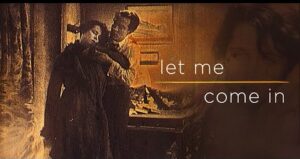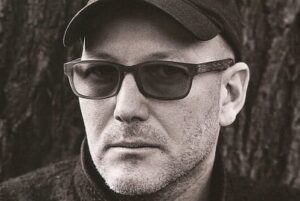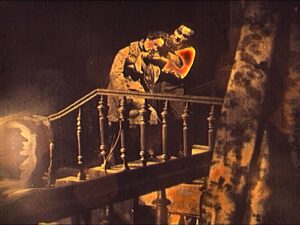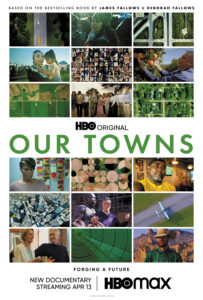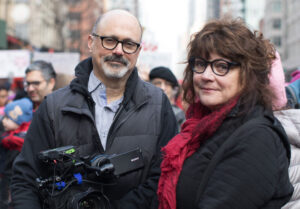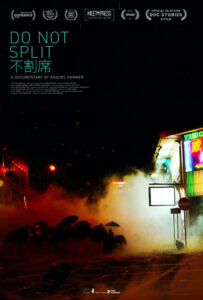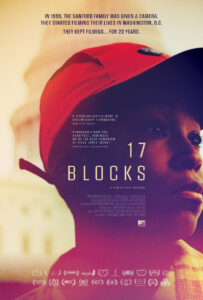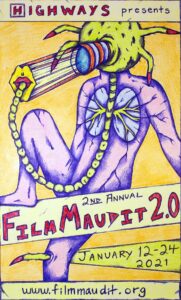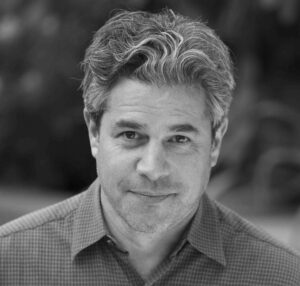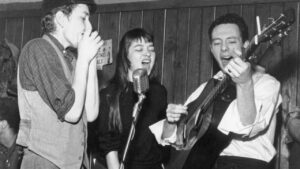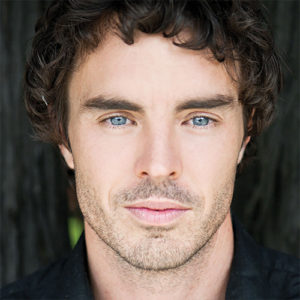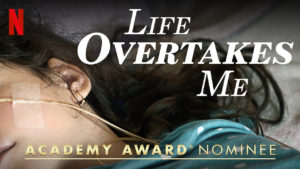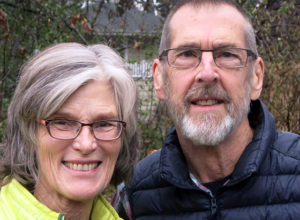In the late 1960s, in the aftermath of the Watts Uprising and against the  backdrop of the continuing Civil Rights Movement and the escalating Vietnam War, a group of African and African-American students entered the UCLA School of Theater, Film and Television, as part of an Ethno-Communications initiative designed to be responsive to communities of color (also including Asian, Chicano and Native American communities). Now referred to as the
backdrop of the continuing Civil Rights Movement and the escalating Vietnam War, a group of African and African-American students entered the UCLA School of Theater, Film and Television, as part of an Ethno-Communications initiative designed to be responsive to communities of color (also including Asian, Chicano and Native American communities). Now referred to as the 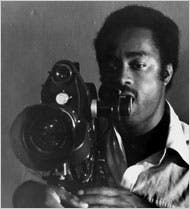 “L.A. Rebellion,” these mostly unheralded artists created a unique cinematic landscape, as—over the course of two decades—students arrived, mentored one another and passed the torch to the next group. Beyond the films themselves, what makes the L.A. Rebellion
“L.A. Rebellion,” these mostly unheralded artists created a unique cinematic landscape, as—over the course of two decades—students arrived, mentored one another and passed the torch to the next group. Beyond the films themselves, what makes the L.A. Rebellion 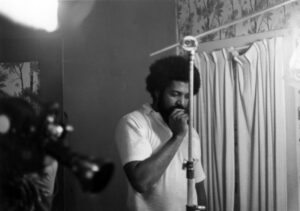 movement a discovery worthy of a place in film history is the vitality of its filmmakers, their utopian vision of a better society, their sensitivity to children and gender issues, their willingness to question any and all received wisdom, their identification with the liberation movements in the Third World, and their expression of Black pride and dignity. As part of the 2021 TCM (Turner Classic Movies) Film Festival is spotlighting two of the L.A. Rebellion’s leading lights, Charles Burnett and Billy Woodberry in the festival’s Special Collections section. Charles Burnett and Billy Woodberry join us for a conversation on their recollections the birth of the L.A. Rebellion and the inspiration for their life altering decision to become filmmakers.
movement a discovery worthy of a place in film history is the vitality of its filmmakers, their utopian vision of a better society, their sensitivity to children and gender issues, their willingness to question any and all received wisdom, their identification with the liberation movements in the Third World, and their expression of Black pride and dignity. As part of the 2021 TCM (Turner Classic Movies) Film Festival is spotlighting two of the L.A. Rebellion’s leading lights, Charles Burnett and Billy Woodberry in the festival’s Special Collections section. Charles Burnett and Billy Woodberry join us for a conversation on their recollections the birth of the L.A. Rebellion and the inspiration for their life altering decision to become filmmakers.
Download MP3 Podcast | Open Player in New Window
Check out Special Collections at: filmfestival.tcm.com/on-hbomax
About the filmmaker – Charles Burnett is a writer-director whose work has received extensive honors. Born in Vicksburg, Mississippi, his family soon moved to the Watts neighborhood of Los Angeles. Burnett studied creative writing at UCLA before entering the University’s graduate film program. His thesis project, Killer of Sheep (1977), won accolades at film festivals and a critical devotion; in 1990, it was among the first titles named to the Library of Congress’ National Film Registry. European financing allowed Burnett to shoot his second feature, My Brother’s Wedding (1983), but a rushed debut prevented the filmmaker from completing his final cut until 2007. In 1988, Burnett was awarded the prestigious John D. and Catherine T. MacArthur (“genius grant”) Fellowship and shortly thereafter Burnett became the first African American recipient of the National Society of Film Critics’ best screenplay award, for To Sleep with Anger (1990). Burnett made the highly acclaimed “Nightjohn” in 1996 for the Disney Channel; his subsequent television works include “Oprah Winfrey Presents: The Wedding” (1998), “Selma, Lord, Selma” (1999), an episode of the seven-part series “Martin Scorsese Presents The Blues” (2003) and “Nat Turner: A Troublesome Property” (2003), which was shown on the PBS series “Independent Lens.” Burnett has been awarded grants from the Guggenheim Foundation, the Rockefeller Foundation, the National Endowment for the Arts and the J. P. Getty Foundation. In 2011, the Museum of Modern Art showcased his work with a month-long retrospective.
To Sleep with Anger – Writer and Director Charles Burnett – A slow-burning 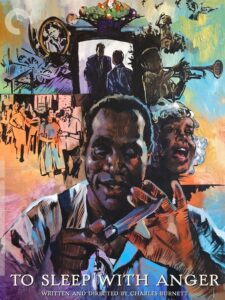 masterwork of the early 1990s, this third feature by Charles Burnett is a singular piece of American mythmaking. In a towering performance, Danny Glover plays the enigmatic southern drifter Harry, a devilish charmer who turns up out of the blue on the South Central Los Angeles doorstep of his old friends. In short order, Harry’s presence seems to cast a
masterwork of the early 1990s, this third feature by Charles Burnett is a singular piece of American mythmaking. In a towering performance, Danny Glover plays the enigmatic southern drifter Harry, a devilish charmer who turns up out of the blue on the South Central Los Angeles doorstep of his old friends. In short order, Harry’s presence seems to cast a 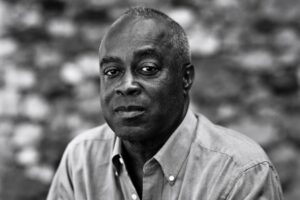 chaotic spell on what appeared to be a peaceful household, exposing smoldering tensions between parents and children, tradition and change, virtue and temptation. Interweaving evocative strains of gospel and blues with rich, poetic-realist images, To Sleep with Anger is a sublimely stirring film from an autonomous artistic sensibility, a portrait of family resilience steeped in the traditions of African American mysticism and folklore.
chaotic spell on what appeared to be a peaceful household, exposing smoldering tensions between parents and children, tradition and change, virtue and temptation. Interweaving evocative strains of gospel and blues with rich, poetic-realist images, To Sleep with Anger is a sublimely stirring film from an autonomous artistic sensibility, a portrait of family resilience steeped in the traditions of African American mysticism and folklore.
About the filmmaker – Billy Woodberry Born in Dallas in 1950, Billy Woodberry is one of the founders of the L.A. Rebellion film movement. His first feature film Bless Their Little Hearts (1983) is a pioneer and essential work of this movement, influenced by Italian neo-realism and the work of Third Cinema filmmakers. The film was awarded with an OCIC and Interfilm awards at the Berlin International Film Festival and was added to the National Film Registry of the Library of Congress in 2013. His latest feature film And when I die, I won’t stay dead (2015) about the beat poet Bob Kaufman was the opening film of MoMA’s Doc Fortnight in 2016. Woodberry has appeared in Charles Burnett’s “When It Rains” (1995) and provided narration for Thom Andersen’s Red HOLLYWOOD” (1996) and James Benning’s “Four Corners”(1998). His work has been screened at Cannes and Berlin Film Festivals, the Museum of Modern Art (MoMA), Harvard Film Archive, Camera Austria Symposium, Human Rights Watch Film Festival, Tate Modern and Centre Pompidou. He received his MFA degree from UCLA in 1982 where he also taught at the School of Theater, Film and Television. Since 1989 Billy Woodberry is a faculty member of the School of Film/Video and the School of Art at the California Institute of the Arts.
Bless Their Little Hearts – Director / Producer / Editor Billy Woodberry – A key masterpiece of the L.A Rebellion, Bless Their Little Hearts distills the social concerns 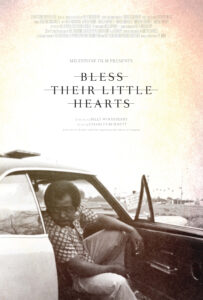 and aesthetics of that trailblazing movement in African American cinema. Billy Woodberry’s film showcases his attentive eye, sensitivity to the nuances of community and family, and the power of the blues. Searching for steady work, Charlie Banks (Nate Hardman) views his chronic unemployment as a kind of spiritual trial. But day work and selling a few catfish can’t sustain a family of five. While his wife, Andais (Kaycee Moore), works to support them with dignity, Charlie finds comfort for his wounded sense of manhood in an affair that threatens his
and aesthetics of that trailblazing movement in African American cinema. Billy Woodberry’s film showcases his attentive eye, sensitivity to the nuances of community and family, and the power of the blues. Searching for steady work, Charlie Banks (Nate Hardman) views his chronic unemployment as a kind of spiritual trial. But day work and selling a few catfish can’t sustain a family of five. While his wife, Andais (Kaycee Moore), works to support them with dignity, Charlie finds comfort for his wounded sense of manhood in an affair that threatens his 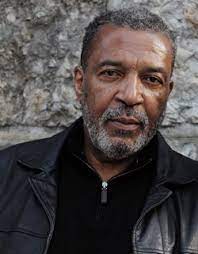 marriage and family. At the heart of this devastatingly beautiful film is the couple’s agonizing confrontation – shot in one continuous ten-minute take – that ranks as “one of the great domestic cataclysms of modern movies.” (Richard Brody, The New Yorker) Named to the National Film Registry, Bless Their Little Hearts features contributions by two iconic American artists: Charles Burnett (Killer of Sheep, To Sleep With Anger), who wrote and shot the film, and Kaycee Moore (Daughters of the Dust), whose powerful performance as Andais Banks remains a revelation. Film restoration by Ross Lipman with Billy Woodberry at UCLA Film & Television Archive. 2K Digital restoration by Re-Kino, Warsaw. English captions and Spanish subtitles.
marriage and family. At the heart of this devastatingly beautiful film is the couple’s agonizing confrontation – shot in one continuous ten-minute take – that ranks as “one of the great domestic cataclysms of modern movies.” (Richard Brody, The New Yorker) Named to the National Film Registry, Bless Their Little Hearts features contributions by two iconic American artists: Charles Burnett (Killer of Sheep, To Sleep With Anger), who wrote and shot the film, and Kaycee Moore (Daughters of the Dust), whose powerful performance as Andais Banks remains a revelation. Film restoration by Ross Lipman with Billy Woodberry at UCLA Film & Television Archive. 2K Digital restoration by Re-Kino, Warsaw. English captions and Spanish subtitles.
Turner Classic Movies (TCM) is a two-time Peabody Award-winning network that presents great films, uncut and commercial-free, from the largest film libraries in the world highlighting the entire spectrum of film history. TCM features the insights from Primetime host Ben Mankiewicz along with hosts Alicia Malone, Dave Karger, Jacqueline Stewart and Eddie Muller, plus interviews with a wide range of special guests and serves as the ultimate movie lover destination. With more than two decades as a leading authority in classic film, TCM offers critically acclaimed series like The Essentials, along with annual programming events like 31 Days of Oscar® and Summer Under the Stars. TCM also directly connects with movie fans through events such as the annual TCM Classic Film Festival in Hollywood, the TCM Big Screen Classics series in partnership with Fathom Events, as well as through the TCM Classic Film Tour in New York City and Los Angeles. In addition, TCM produces a wide range of media about classic film, including books and DVDs, and hosts a wealth of material online at tcm.com and through the Watch TCM mobile app. Fans can also enjoy a TCM curated classics experience on HBO Max.
For news, screenings and updates go to: filmfestival.tcm.com
Explore Turner Classic Movies Schedule
Check out Special Collections at: filmfestival.tcm.com/on-hbomax

